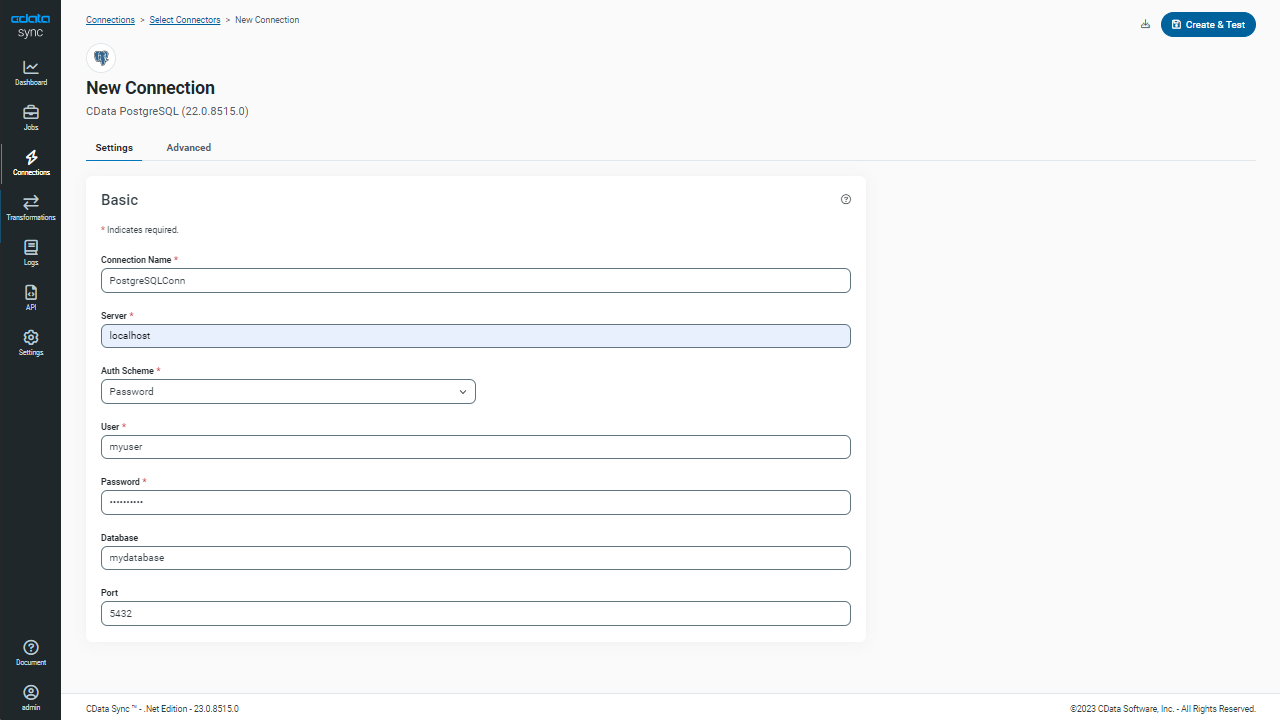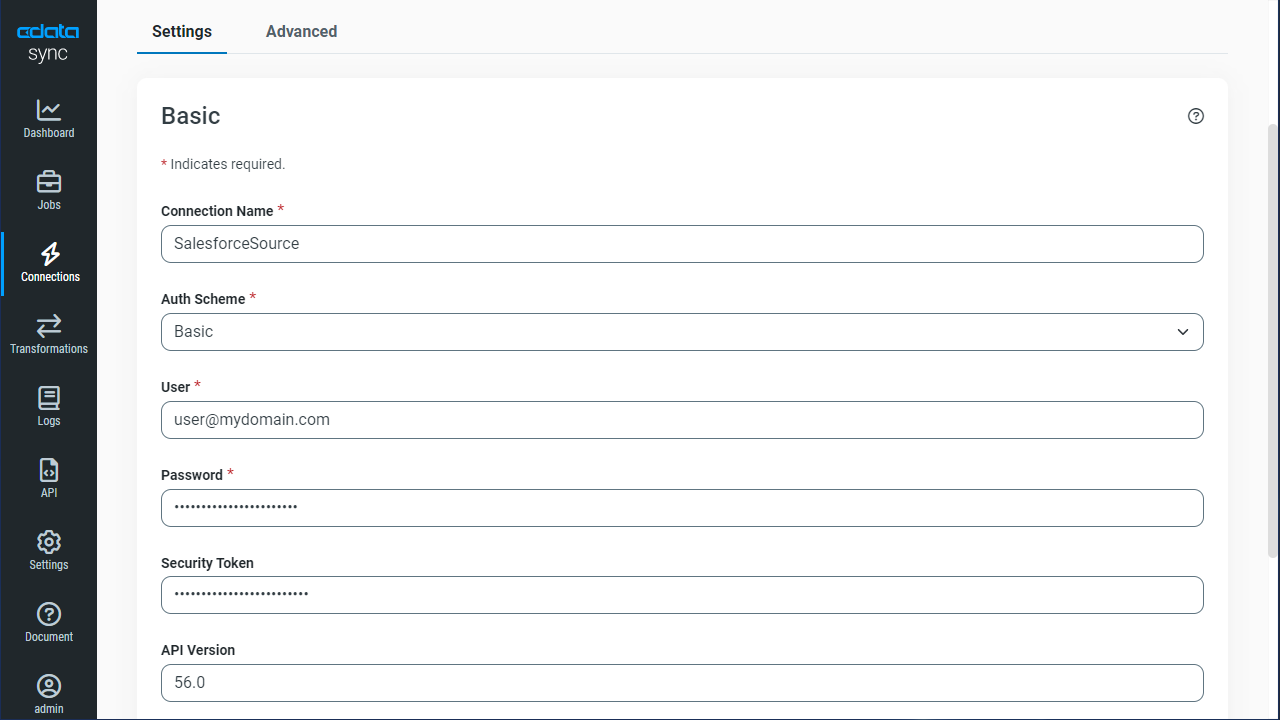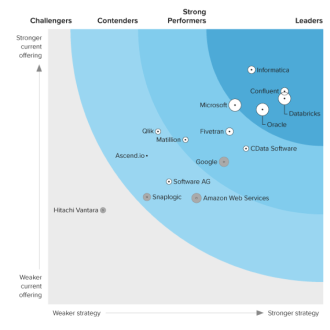Discover how a bimodal integration strategy can address the major data management challenges facing your organization today.
Get the Report →Automated Continuous Epicor Kinetic Replication to AlloyDB
Use CData Sync for automated, continuous, customizable Epicor Kinetic replication to AlloyDB.
Always-on applications rely on automatic failover capabilities and real-time data access. CData Sync integrates live Epicor Kinetic data into your AlloyDB instance, allowing you to consolidate all of your data into a single location for archiving, reporting, analytics, machine learning, artificial intelligence and more.
Configure AlloyDB as a Replication Destination
Using CData Sync, you can replicate Epicor Kinetic data to AlloyDB. To add a replication destination, navigate to the Connections tab.
- Click Add Connection.
- Select PostgreSQL as a destination.
![Configure a Destination connection to AlloyDB.]()
- Enter the necessary connection properties. To connect to AlloyDB, set the following connection properties (CData Sync ships with the Npgsql ADO.NET Provider for PostgreSQL):
- Server: The address of the server hosting the AlloyDB database.
- Port: The port used to connect to the server hosting the AlloyDB database.
- User: The user ID provided for authentication with the AlloyDB database.
- Password: The password provided for authentication with the AlloyDB database.
- Database: The name of the database.
- Click Test Connection to ensure that the connection is configured properly.
![Configure a Destination connection.]()
- Click Save Changes.
Configure the Epicor Kinetic Connection
You can configure a connection to Epicor Kinetic from the Connections tab. To add a connection to your Epicor Kinetic account, navigate to the Connections tab.
- Click Add Connection.
- Select a source (Epicor Kinetic).
- Configure the connection properties.
To successfully connect to your ERP instance, you must specify the following connection properties:
- Url:the URL of the server hosting your ERP instance. For example, https://myserver.EpicorSaaS.com
- ERPInstance: the name of your ERP instance.
- User: the username of your account.
- Password: the password of your account.
- Service: the service you want to retrieve data from. For example, BaqSvc.
In addition, you may also set the optional connection properties:
- ApiKey: An optional key that may be required for connection to some services depending on your account configuration.
- ApiVersion: Defaults to v1. May be set to v2 to use the newer Epicor API.
- Company: Required if you set the ApiVersion to v2.
![Configure a Source connection (Salesforce is shown).]()
- Click Connect to ensure that the connection is configured properly.
- Click Save Changes.
Configure Replication Queries
CData Sync enables you to control replication with a point-and-click interface and with SQL queries. For each replication you wish to configure, navigate to the Jobs tab and click Add Job. Select the Source and Destination for your replication.
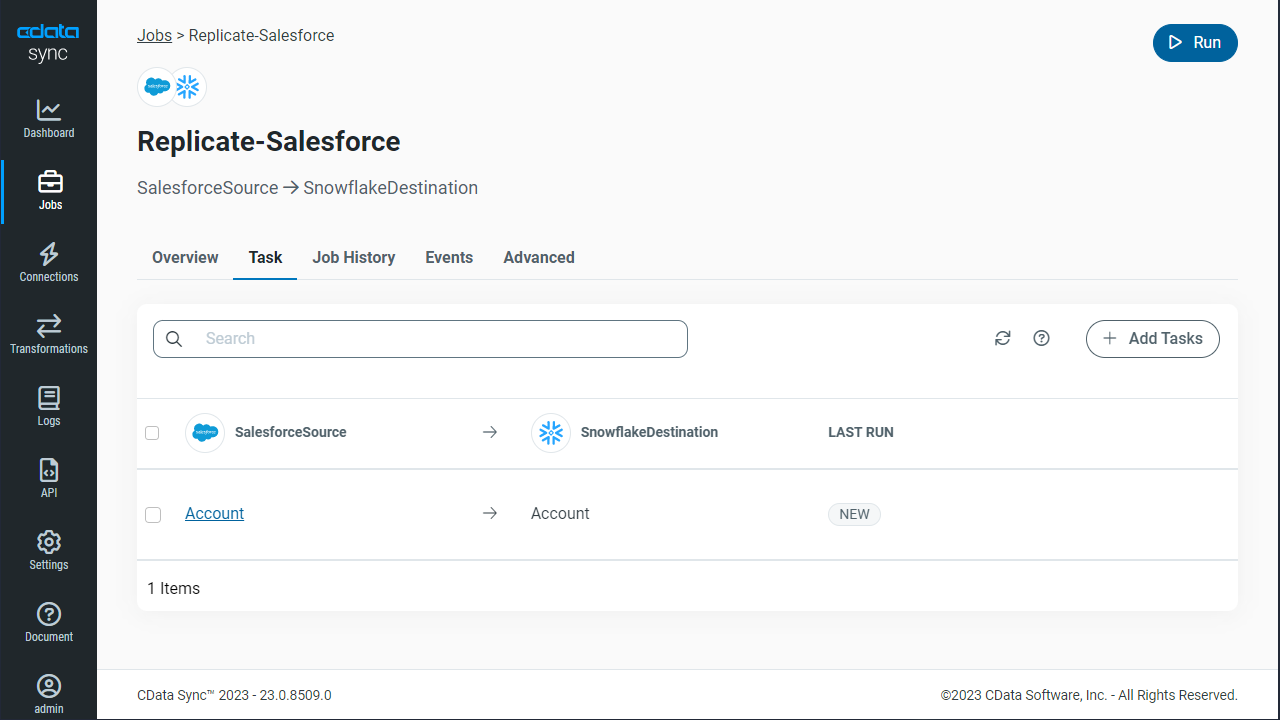
Replicate Entire Tables
To replicate an entire table, click Add Tables in the Tables section, choose the table(s) you wish to replicate, and click Add Selected Tables.
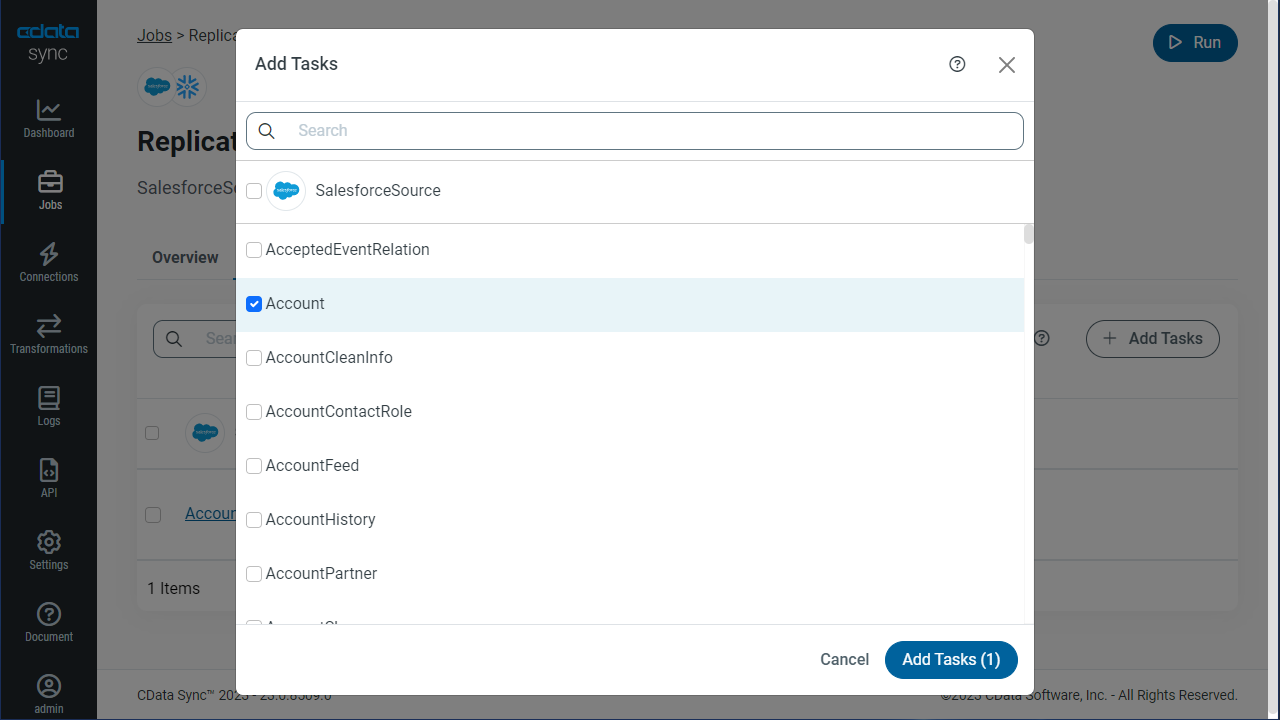
Customize Your Replication
You can use the Columns and Query tabs of a task to customize your replication. The Columns tab allows you to specify which columns to replicate, rename the columns at the destination, and even perform operations on the source data before replicating. The Query tab allows you to add filters, grouping, and sorting to the replication.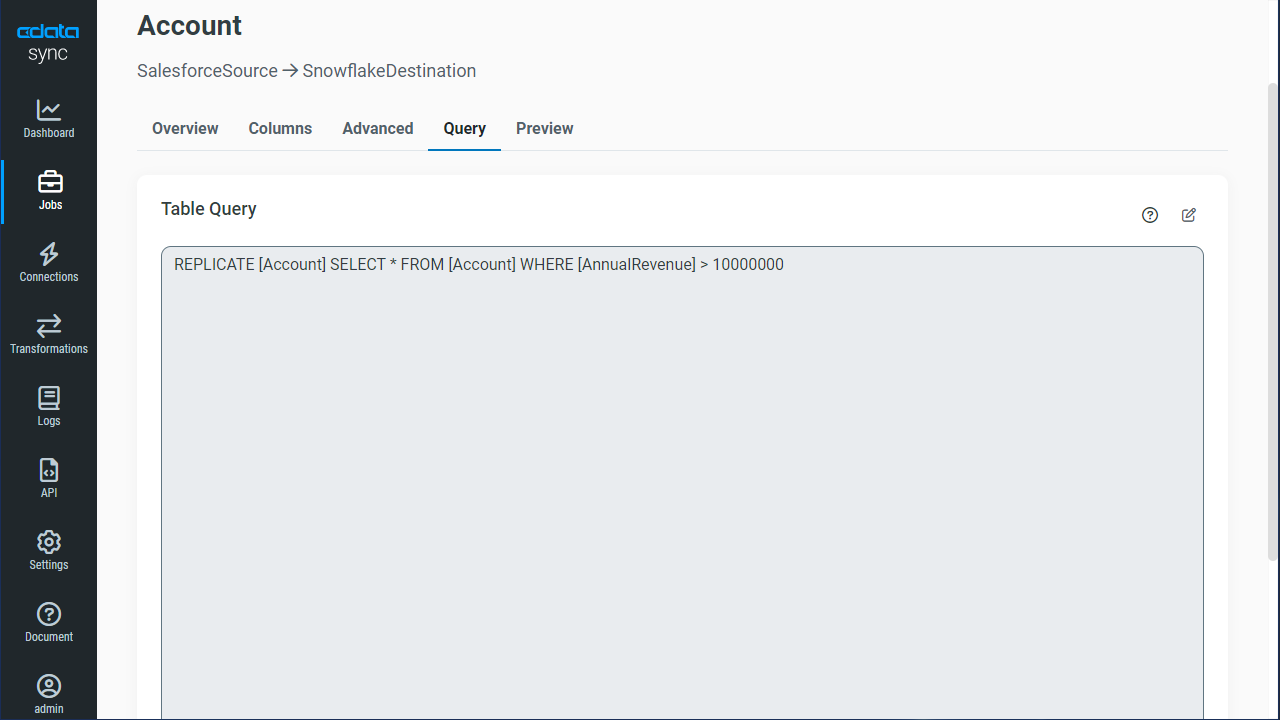
Schedule Your Replication
In the Schedule section, you can schedule a job to run automatically, configuring the job to run after specified intervals ranging from once every 10 minutes to once every month.
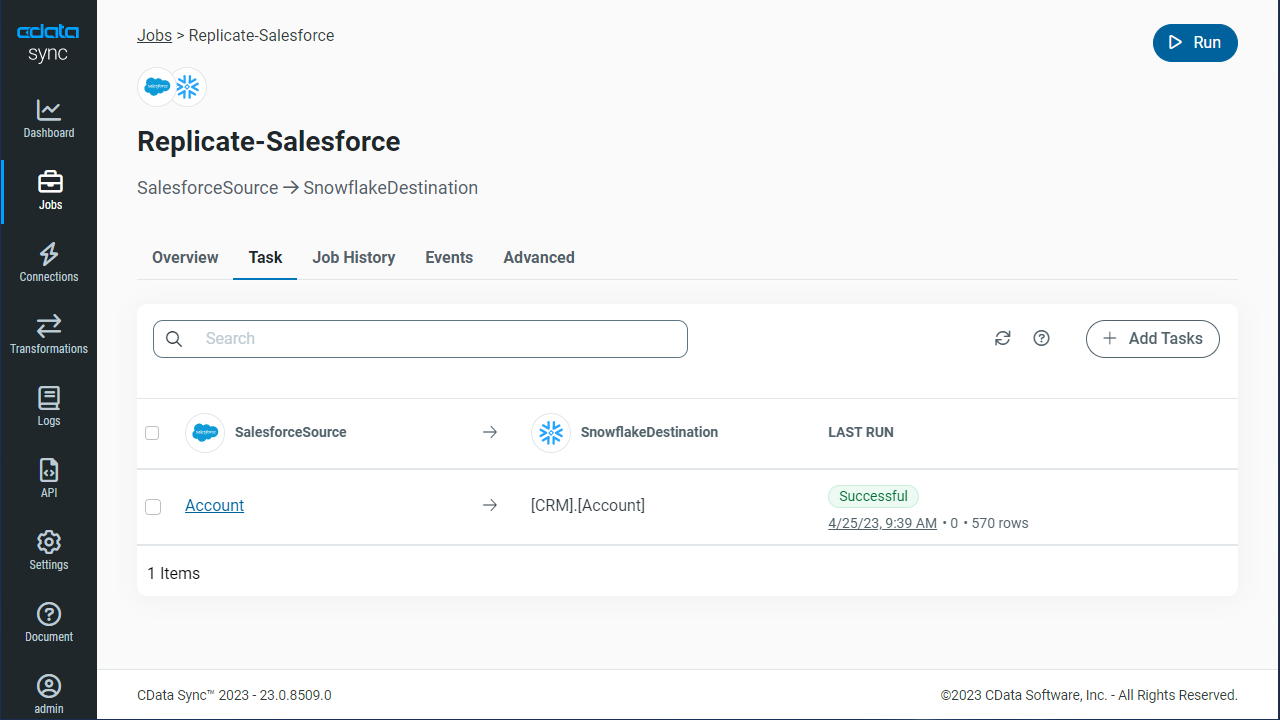
Once you have configured the replication job, click Save Changes. You can configure any number of jobs to manage the replication of your Epicor Kinetic data to AlloyDB.







